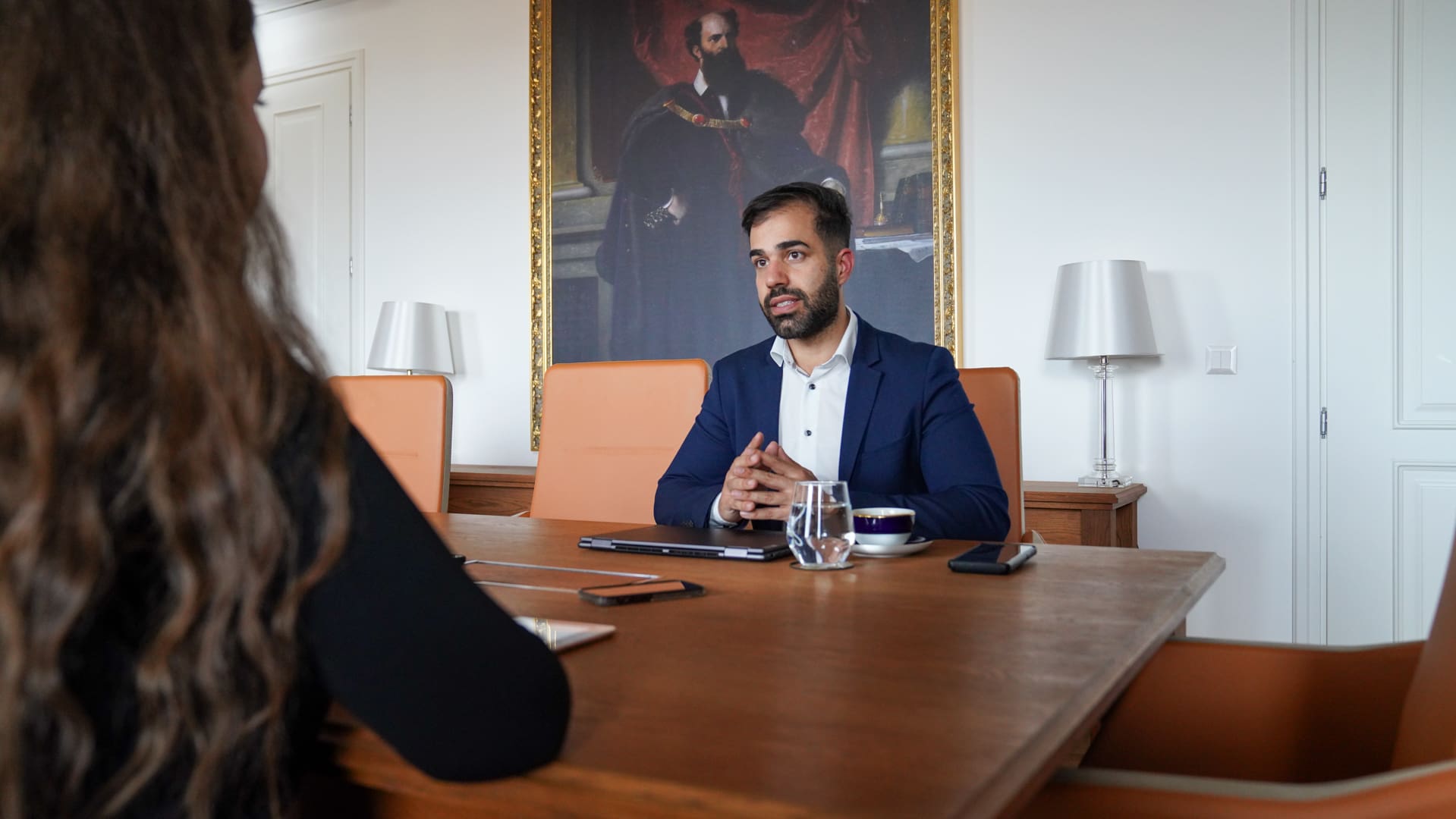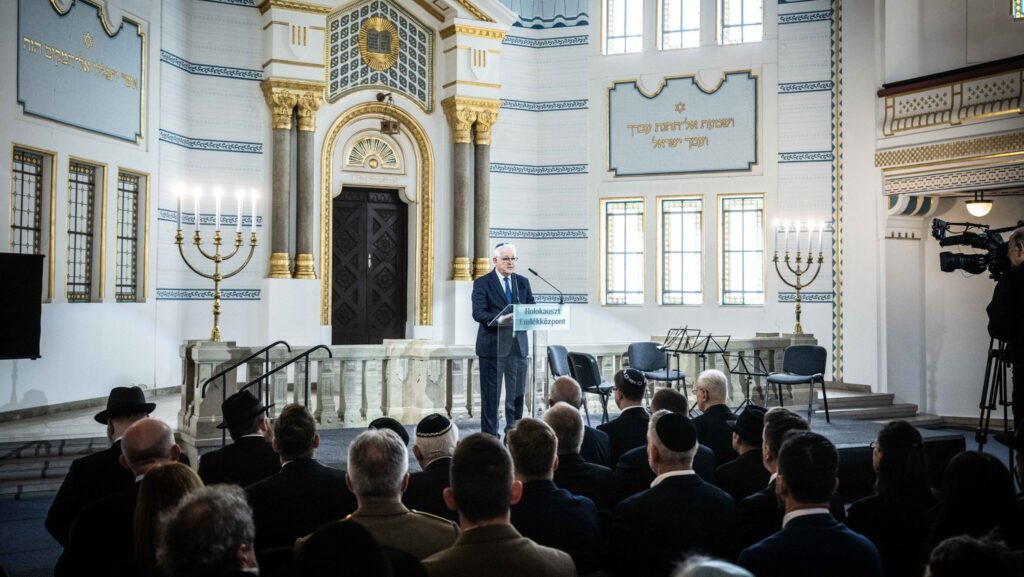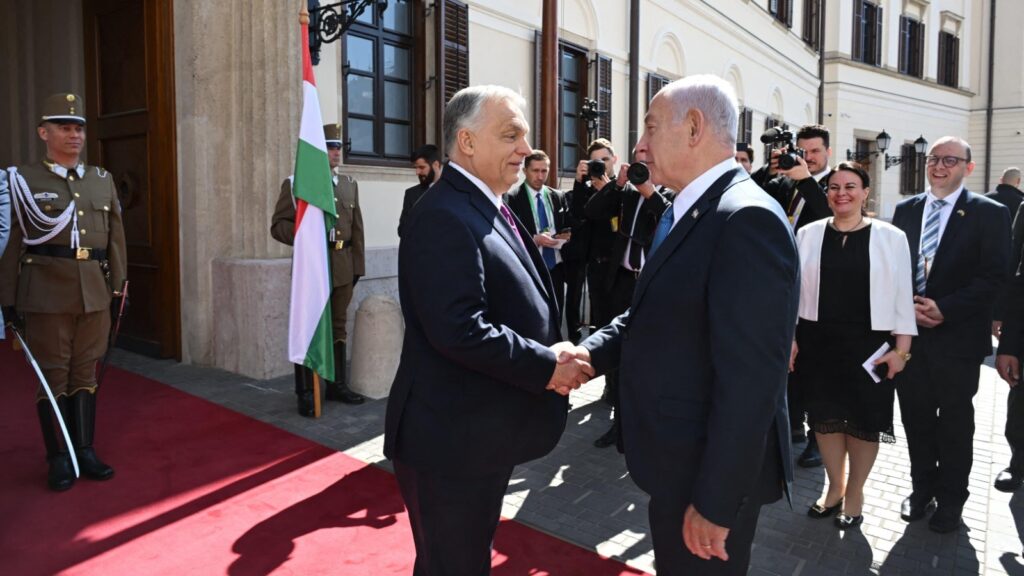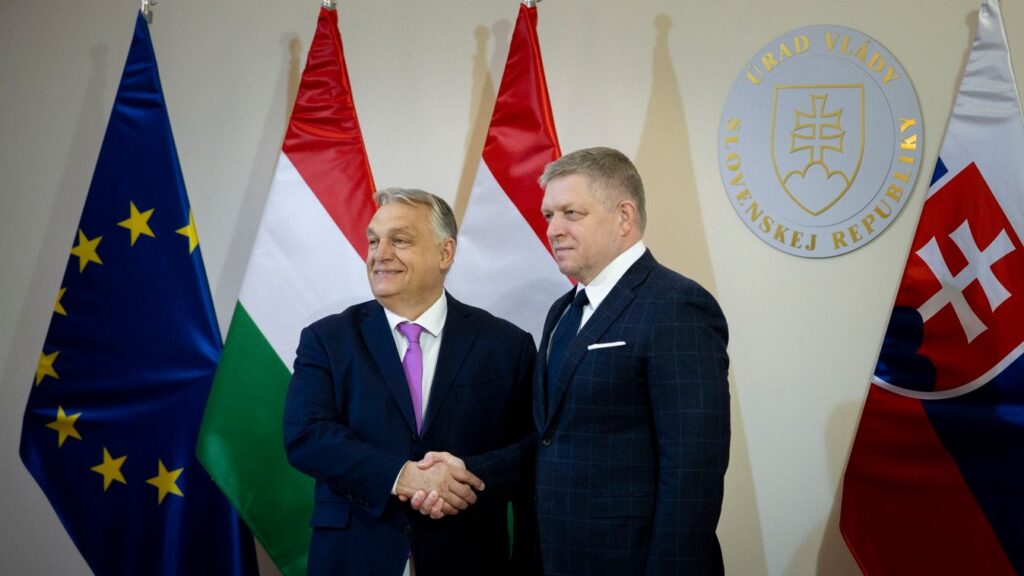Or Yissachar is a national security researcher, leading the Israel Defence and Security Forum — Habithonistim’s Research Department. Yissachar has served in the Intelligence Corps’ elite 8200 unit and speaks five languages, including French and Persian. His research encompasses Iran, Israel’s security strategy in the Arab world, the Palestinian front, as well as the security strategies of the European Union and the United States. Beyond his research and high-tech career, Yissachar is a concert pianist and composer, holding a bachelor’s degree in piano performance and musicology from Tel Aviv University and a master’s degree from the Paris School of International Affairs.
***
Could you share some of your professional background, interests and current work at Israel Defence and Security Forum?
I started to work at IDSF three years ago as a master’s graduate who was looking for a way to make an impact. While looking for a job, I thought it would be nice to volunteer and do something meaningful with my polished science background. At that point, I met with the founder of IDSF, Brigadier General (res.) Amir Avivi and started to work at IDSF. I came to this organization with an established background in Iran and experience serving as an intelligence analyst in the Intelligence Corps’ elite 8200 unit.
We started to build a research department at IDSF with a hybrid structure of recruiting senior officers and young people, which is, in my opinion, very convincing. The organization counts over 20,000 people, including several thousand senior officers, commanders and combatants. What makes us different from others is that we broke the monopoly we had in security as the Israeli establishment was not famous for appreciating different facts and different opinions, so we are putting the views of many different people in Israel on the table, on the TV screens, as a movement of influential officers. We’re very vernacular and populist in a good sense: our door is open to anyone, and this is where true power comes from.
Military service is not a shared experience for us living in Western countries. How did it change you and perhaps your perspective on the value of life?
I think it’s extremely important. I’ll tell you why; let’s start from the end. When you come to work in an Israeli company, you feel like you’re working for a group of people. People who are not working eight to four, but working around the clock make it an experience and do not consider it a hassle. When I lived in France, people regarded work as a hassle; however, in Israel, the initiative spirit comes from that social place of sleeping together in the same room in the military and having some rough experiences together. It isn’t that nice to do some guard duty for long hours, go to faraway bases, or go out to the territory and engage in combat, but it makes you stronger. The military made me much more aware of the security challenges; it made me much more punctual on missions, and from a kid, I became someone in uniform. That’s where the respect I mentioned comes from when a major general who is 50 talks to 18-19-year-olds and regards them as equals.
There is a wave of motivation today in Israel. What we went through on 7 October motivated people to act even more than usual, which is a real strength. This is a source of power, a central ingredient in security.
Whenever I talk to groups of young people, I tell them that the Zionist spark in their eyes is our main security component. A few days ago, I talked with a friend who went to Gaza and returned home for some time off. He said, ‘We fought, which wasn’t a walk in the park, but the moment our commander told us that everyone in Israel is looking at us, behind us, and they’re telling how proud they are, our backs were stretched, and we were ready to fight more.’ They fought for 60 hours without sleep and still were like, ‘What next? What next?’ So I feel that spirit today, and this is the spirit that makes us the best combatants.
Can you walk our readers through what happened to Israeli civilians on Black Saturday, 7 October, and how it impacted Israeli society?
7 October was a big scandal. The more days pass, the clearer it becomes that we’re caught unprepared, completely by surprise. The top defence establishment was caught by surprise, but people like us, the IDSF, were quite aware of the fact that Hamas is a security menace, and there is nothing to stop them from attacking us. Much like there is nothing to stop Hezbollah from invading the northern border if they choose. Needless to say, I think people in the defence establishment know exactly what went wrong; they’re extremely determined to make it right, and I commend them for it. Even though many people said that Israeli society became so divided this year that there was no chance they would be drafted during a war, we saw a huge mobilization of the reserve army.
At first, on 7 October, there was a lot of unclarity. I was in the centre near Tel Aviv; at 6:30 in the morning, I woke up to the sound of sirens. I thought it was probably a targeted killing in Gaza, and they launched some sirens, and that’s it, but it didn’t stop. As the news was coming in, I kept myself updated through Telegram and some Palestinian Hamas channels and saw that it was not just the mainstream media that didn’t know whether to corroborate or stream the facts. Soon, we started to see journalists saying, ‘There is nobody to help the people on the ground; you need to send help fast’ live on air.
Then we saw on Telegram the vans ramming through the fence and people swarming into Israel, and we started to wonder if it was really the Gaza border as it seemed so untrue and surreal. The Hamas plan there was to first shock Israel by killing 1,300 Israelis and taking 236 hostages, injuring over 3,000, which created the most horrific terrorist attack ever in Israel’s history. Also, they took the trouble to do two things: first, to humiliate us in terms that I don’t think our readers can take.
It was sadism in the worst forms that nobody can imagine.
They targeted babies, children, soldiers, women, and the elderly, the people whom you would not imagine being targets of such monsters. The second thing they did was to document. It was the most well-documented massacre in history. One of my teachers told me at Sciences Po that the goal of terrorism is not just to kill but to let many people know about it. Hamas made sure to go with GoPro cameras, to go on Facebook Live and do little custom productions right in their Telegram channels, where they broadcasted in HD quality the rocket attacks and paragliders who penetrated through the fence. By 10:11 in the morning, there were already perfectly well-edited videos on social media. Terrorists also forced the victims’ loved ones to go into their Facebook pages, where they posted the victims’ pictures of being slaughtered and then uploaded them through their Facebook accounts.
I suspect that had that been the day after; it would not be even close to that scale because, on 7 October Saturday, it was Simchat Torah, the second Sukkot holiday, the Nova party with 5,000 people attending, and most of the military was out on vacation. However,
I don’t think that Hamas expected Israel’s reaction.
I think that they were much like, as Hezbollah leader Sheik Hassan Nasrallah said in 2006, ‘Had I known I came to kidnap three soldiers, had I known Israel would launch the Second Lebanon War, I wouldn’t have done it.’ Nasrallah was the engineer who foresaw or coined the term that Israeli society is like a spider web that you can easily tear apart. He probably didn’t know that spider web is the strongest material in the world.
Hamas and Iran saw what we’ve been tracking and talking about all year long, that the military shouldn’t be involved in political demonstrations, and saw it as a green light to attack and humiliate Israel. However, they didn’t envision that Israel would go into Gaza, take control militarily of the entire Gaza Strip and wipe out Hamas. They just expected it to be another operation where they took many hostages as a bargaining chip, as a wild card they could use.
Although Israel was humiliated and caught unprepared as the system failed on 7 October, several long hours later, the IDF swarmed and cleared the areas. Meanwhile, you see how the Israeli spirit prevailed because of how people on the ground, police officers, reserve officers from the military, and just private citizens with handguns fought against terrorists. I think the most remarkable thing about that day was seeing how bravely people fought for their lives.
The attack on 7 October may represent one of the greatest intelligence failures in Israeli history. From a security perspective, could you elaborate more on what happened on 7 October and if it could have been prevented?
Absolutely. I’m telling you, as a reserve intelligence analyst and someone who is analysing security policies right now, we have talked and written about these things for three years now, about how you cannot allow Hamas to metastasize on the other side of the fence. One thing Israel learned from this massacre is that the strategy of containment has failed miserably, and we cannot allow threats to metastasize anymore. We told ourselves a very convincing story that you can let threats remain where they are; Hezbollah can grow into 150,000 rockets and 20,000 armed men, and Hamas could grow and harass people in the North and the South from time to time as they’re living in the periphery, and they’re quote-on-quote “used to it”. We also told ourselves that Judea and Samaria could thrive with terrorism and illegal construction by Palestinians, Iran could strive for nuclear, and all of that could be contained because we’re strong enough. It was the spirit that guided the Oslo Accords in the 1990s when Shimon Peres and Yitzhak Rabin famously said, ‘We’re strong enough to deal with anything they present to us; worst case, the world will see that we extended our hand, and that will give us all the international credit to act.’ Of course, that was far from true.
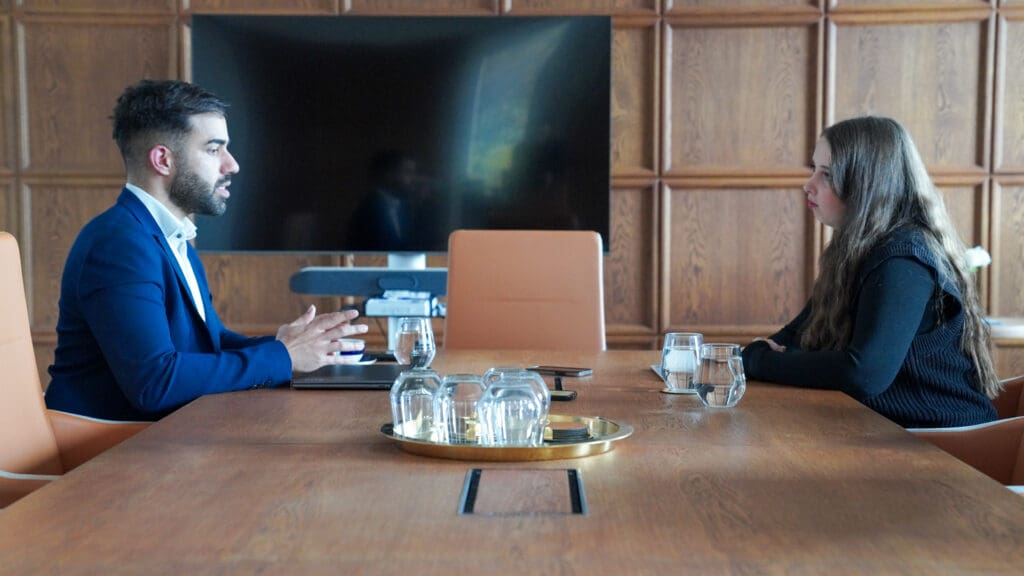
A year and a half ago, in June 2020, IDSF wrote a strategic assessment and presented it to Benjamin Netanyahu, the Commissioner of Police, the head of Mossad, senior military officials, and members of the Knesset and ministers, and told them, ‘you cannot allow threats to metastasize, you need to arm the rapid response units in each town.’ We met with the Ministry of Homeland Security a few months ago and advised him to ‘build up the National Guard’.
The Israeli defence establishment was contained because Hamas was perceived as a rational actor that has 2 million people under its responsibility, and it’s pretty convenient to do business with. Qatar brought $3 million per month, and we expanded construction workers to 18,000 people; these construction workers came from Gaza every day and worked and renovated houses in the same communities that they ravaged a few days later, and all the intelligence knew it. I think there is one thing to know, but there are differences in knowledge and the insight of what to do with the knowledge, and we just didn’t want to know. I suspect some of the defence establishments will have to overhaul their whole worldview right now, much like they did after the Yom Kippur War. The difference is that in the Yom Kippur War, tanks were fighting in the Golan Heights and the Sunni Peninsula, which was quite a fair fight. This time, however, there were armed terrorists walking into a grandma’s house and butchering her. This is not a fair fight. Hamas knew exactly what they were doing, but they miscalculated the Israeli society as Nazi Germany miscalculated when they invaded the Soviet Union. Adolf Hitler famously said on June 22 1941, ‘We’re going to kick and slam open the main door, and the whole structure will come crumbling down’. He was wrong, and he died in the bunker in the same way Yayha Sinwar will likely die. Hamas thought that Israeli society would collapse into a spider web, protests and eventually, many would leave the country. However, exactly the opposite happened.
Going back in 2005, Israel moved its troops out from Gaza. International organizations and mainstream media often blame Israel for the poor state of affairs in Gaza, while since 2006, Hamas has been the elected governing power in the area. How did Hamas win the election, stay in power and do they bear the responsibility for the poor situation in Gaza?
Yes, and yes. Hamas bears responsibility, and they are the governing entity. Israel disengaged from Gaza in 2005, and it imagined that relinquishing the territory would mean going back to safer borders, which was wrong thinking. When Israel is in the territory, the IDF can carry out counterterrorism strikes, like the ones in Judea and Samaria. Just in the last month, Israel arrested 2,000 people in Judea and Samaria. Before 7 October this year, 1,400 terrorists were arrested who were ticking time bombs and were intending to carry out terrorist attacks. In Gaza, there were zero arrests, obviously because we were on the other side of the fence, and we had no option for counterterrorism. In the international community, I hear a lot about how Hamas does not equal Palestinian people, and they’re different and do not represent them. It’s one thing to hear it from Twitter influencers. Still, it’s an entirely different thing to hear from prominent European leaders and from the leaders of the free world who are extremely supportive of Israel but still have this conception in their heads that it’s Israel’s job really to fix the situation. Let’s not delude ourselves; in reality, Hamas represent a major swath of the Palestinian people.
In 2006, they won fair and square 74 seats out of 132 in the Palestinian parliament. The Palestinian Prime Minister was Ismail Haniyeh from Hamas, for a short period before international pressure and Israeli pressure made Mahmoud Abbas from the Palestinian Authority dissolve the unity government. It’s also a myth that Israel disengaging from Gaza would give it all the international credit it wants to attack if Hamas attacks it with rockets, as we saw in the UN’s Goldstone report and Palmer report. The UN doesn’t want Israel to defend itself, even when it relinquishes territory. But it’s something even deeper than that. I think in the West and Israel, we tend to be a bit racist toward our enemies. We don’t give them enough credit for knowing what they want, who they vote for, and what they believe. We put words in their mouths by saying their claims began and ended on 4 June 1967; they didn’t, as their claims go back to 1948 and the beginning of the Zionist movement in the 19th century.
You don’t hear a single Palestinian leader saying they want to live within the 1967 borders, living side by side peacefully with a Jewish state.
None of them have ever said it, neither Fatah nor Hamas. Both main political factions, which represent the Palestinian people, have the logos of the entire state of Israel from the river to the sea in their maps now, and they call it Palestine. That’s what we have, nothing else, as we say in Hebrew.
In the days after in Gaza, Judea, and Samaria, we will have to do de-Nazification programmes just like Germany after World War Two, to de-Nazifiy the society from all of these antisemitic textbooks and praising terrorists by naming squares after them, teaching physics through how to shoot at soldiers, teaching grammar with glorifying Dalal al-Mughrabi from the 1978 deadly coastal road attack, making the terrorists martyrs the national heroes, and paying terrorists over €300 million a year as a reward for their attacks. All of this will have to change.
The Israeli Defence Force has been criticized heavily during the Gaza invasion and portrayed as an army which doesn’t care about civilian Palestinian lives. What are the challenges IDF faces in the Gaza invasion, and what rules have the army have to abide by to minimize civilian casualties in Gaza?
I think that Israel should go straight ahead with its plan, with coordination with its allies, the West, the US, and European countries, but it should not be led astray or confused by criticism. If you enter some of these websites, you would think that Israel just woke up one shining morning and decided to perform genocide on the Palestinians. It’s an entirely twisted picture. The United Nations has gained fairly and squarely its reputation as an active participant in this war on Hamas’s side. I’m using my word carefully, but I believe that given the track record of the United Nations, having the Human Rights Council saying that Israel doesn’t have the right to defend itself because it’s an occupied territory—even though we left Gaza—. The Council has also compared the Palestinians’ case to the Holocaust, and compared Israel to the Nazi regime. So I don’t expect much from them.
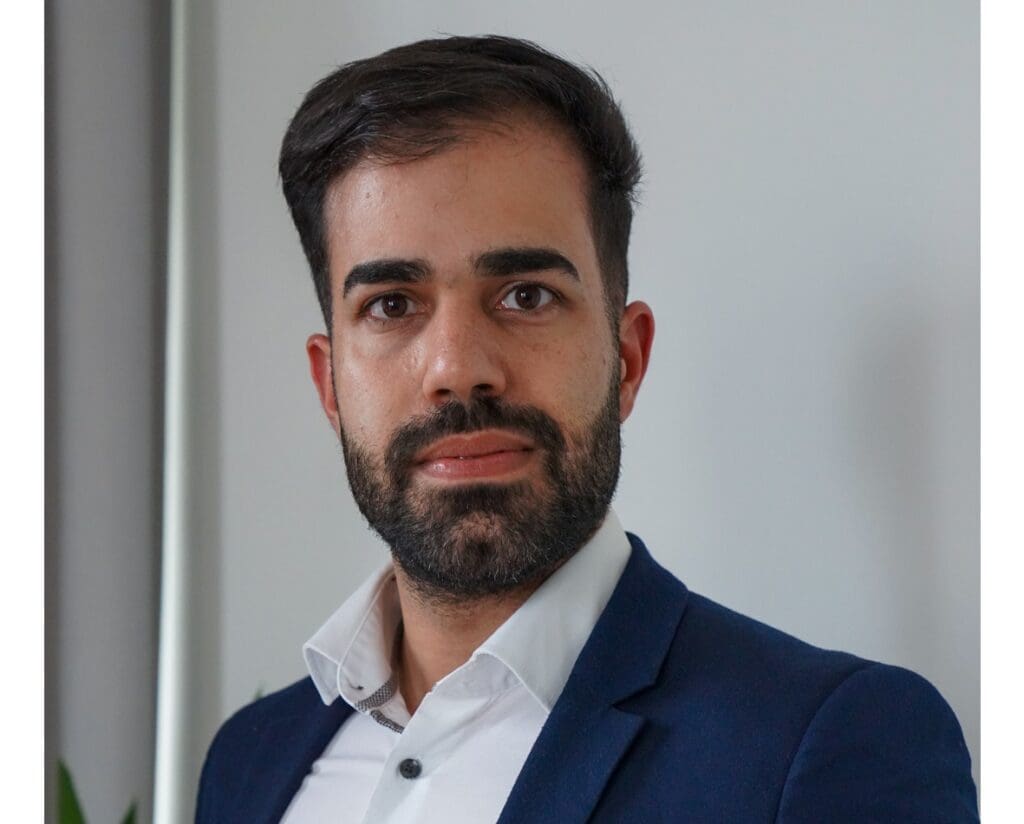
However, the IDF has a challenge here because what they’re doing right now is a three-phase plan: first, to decide to go into war, to define the objectives of the war, to recruit all the reserve soldiers, and start training them, that all took at least three weeks. Defining the objectives of a war is important.
For the first time in 50 years, we declared a state of war, not an operation or an activity, and the objective was to win the war.
This is also one of my great criticisms of the Israeli security policy over the past few decades: we didn’t define victory as our goal. We defined our objective as pushing the next round of conflict to a later stage or reestablishing our deterrence for an extra few months. The second stage was Air Force, hammering Gaza, targeting intelligence headquarters and military bases, really making the way for the ground offensive while instructing civilians to evacuate. The third stage is the ground offensive, clearing military bases, going into sensitive sites like Al-Shifa and other hospitals, finding invaluable information and intelligence, computers, manuals detailing exactly what they were going to do, evidence, and even bodies of hostages. So, the ground offensive goes hand in hand with releasing the hostages. I think the main objective right now, after, God willing, many hostages come back home, is to take military control of the entire Gaza Strip completely. I don’t think there’s anyone in Israel who would expect Israel to hold its fire. Now, it’s not only unlikely but also unthinkable. Coalition and opposition people from all political spectrums in Israel would like to see Gaza finished in the Hamas sense of the word: take control of the entire territory, and clear it from Hamas.
At the end of the day, the IDF doesn’t want to see civilian casualties; Hamas does. When the IDF orders civilians to evacuate, we also see the most surreal scenes. On Salah al-Din road, which is the main road in Gaza, hundreds of thousands were walking in the human march southbound while Hamas was targeting these Palestinian civilians with weapons, murdering their own women and children with sniper fire. Well-documented Hamas communication officials tell them not to evacuate as ‘it’s a Zionist attempt for a second Nakba’. At the same time, the IDF orders them to evacuate and safeguards the human passage with tanks to protect the Gaza civilians from Hamas attacks. It’s surreal.
Millions of Arabic text messages, pre-recorded phone calls, and pamphlets were dropped by the IDF to caution Gazans about the attacks. When they entered Al-Shifa Hospital, for example, the IDF suggested people leave, but they didn’t order them to do so in case they wanted to have medical care; it was okay. The IDF even brought them food, water, and fuel while operating the hospital. I haven’t heard of any single Western military who does it.
I think the world needs to frame this as the liberation of Gaza from Hamas rule for the benefit of all sides.
The second part of the discussion is about Mr Yissachar’s thoughts on why Europe should oppose calls for a ceasefire, how Israelis view the humanitarian operational pause, how the war affects the West Bank, the antisemitic rise in European countries, Hungary’s strong pro-Israel stance, and the importance of Zionism. It will be published in an upcoming Hungarian Conservative article.
Related articles:

